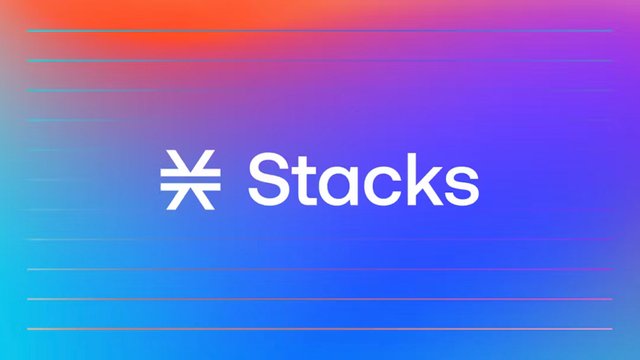
In the world of cryptocurrencies, there are countless projects and tokens competing for attention and investment. One of the more interesting projects to emerge in recent years is Stacks, a blockchain platform that aims to enable smart contract functionality for Bitcoin while also serving as a platform for decentralized applications (dApps).
Stacks has recently gained attention due to its support for Bitcoin-based non-fungible tokens (NFTs), as well as an upcoming upgrade that promises to further improve the platform's speed and scalability. In this article, we'll explore what Stacks is, how it works, who should use/buy it, and whether it's safe to invest in this emerging cryptocurrency project.

What is Stacks?
Stacks is a blockchain platform designed to enable the creation of decentralized applications and smart contracts that can function on top of the Bitcoin network. The platform's native token, STX, is used as a means of payment for transaction fees and as a means of exchange for services on the Stacks network.
Stacks is built on top of the Bitcoin network as a layer 2 solution, which means that it operates independently of the Bitcoin network but utilizes its security and stability.
The main objective of Stacks is to make Bitcoin more versatile and programmable, beyond its primary function as a payment system. The platform is designed to be developer-friendly, with support for popular programming languages such as Clarity, JavaScript, and Python.
This makes it easier for developers to build decentralized applications and smart contracts on the platform, without having to learn new languages. Stacks also provides the necessary tools and infrastructure for developers to create and manage their applications, including a decentralized naming service and an integrated wallet.
With its unique features and focus on expanding Bitcoin's capabilities, Stacks has garnered significant attention from both developers and investors in the blockchain industry.
Related: Ethereum Education: What is a Dapp?
How Does Stacks Work?
At its core, Stacks is a layer 2 protocol that operates on top of the Bitcoin network. It achieves this by utilizing a unique technology called Proof of Transfer (PoX), which allows the Stacks blockchain to anchor itself to the security and stability of the Bitcoin blockchain.
In simpler terms, PoX enables Stacks to leverage the security and trustlessness of the Bitcoin network without compromising its own flexibility and programmability. This approach is vastly different from other layer 2 protocols that are built on separate blockchains, which can result in interoperability issues and trust concerns. By building on top of Bitcoin, Stacks avoids these issues entirely and can focus on developing its unique features and use cases.
The Stacks protocol enables developers to build decentralized applications (dApps) and smart contracts that can interact with the Bitcoin network. This is done by creating a virtual layer on top of the Bitcoin blockchain that can store additional data and execute code. This virtual layer is known as the Stacks Blockchain and is designed to be a flexible and scalable platform for building dApps and smart contracts.
Unlike other platforms like Ethereum, which use complex and resource-intensive consensus algorithms, Stacks utilizes a simpler consensus mechanism that enables it to be more energy-efficient and accessible to users with lower-end hardware. By leveraging Bitcoin's security and using a simplified consensus algorithm, Stacks is able to offer a unique platform that provides flexibility, scalability, and security all in one.

Who Should Use/Buy Stacks?
Stacks is an innovative blockchain platform that is designed to extend the functionality of Bitcoin. Stacks is ideal for anyone who is interested in using Bitcoin as a platform for decentralized applications (dApps) and smart contracts.
It is especially well-suited for developers and entrepreneurs who want to build new products and services on top of Bitcoin without the limitations that come with the base layer of the Bitcoin blockchain.
Stacks is also attractive to investors who are looking for an alternative investment opportunity in the cryptocurrency market. With its impressive performance over the last few months, Stacks is proving to be a popular choice for investors who are seeking high returns in a short amount of time.
Stacks is an open-source project that anyone can use or build upon. This means that there is a large community of developers, entrepreneurs, and investors who are actively contributing to the platform and helping to drive its growth.
Stacks is also designed to be highly scalable and efficient, which makes it an ideal choice for developers who want to create high-performance dApps and smart contracts. With Stacks, developers can create new products and services that can be used by millions of people around the world, without having to worry about the scalability and performance limitations that are common with other blockchain platforms.
Overall, Stacks is an exciting and innovative blockchain platform that is well-suited for a wide range of users, from developers and entrepreneurs to investors and traders.
Related: Ethereum Layer 2 Solutions: Temporary Salvation?
Is it Safe to Buy Stacks?
As with any investment, there are risks associated with buying Stacks. The cryptocurrency market is known for its volatility, and STX's price can fluctuate rapidly. This means that there is a risk of losing money if the price of STX falls. Additionally, Stacks is a relatively new project, and there is always a risk that it will fail to gain widespread adoption or face technical difficulties.
That being said, Stacks has established itself as a legitimate project with a strong community and a clear vision for the future of decentralized finance on the Bitcoin network. The project has also undergone a successful SEC-qualified token offering and has gained attention from investors and analysts alike. As with any investment, it's important to do your own research and assess your own risk tolerance before buying Stacks.
While Stacks has technical advantages with Bitcoin integration, it faces competition from other blockchain ecosystems and the infrastructure for Bitcoin NFT trading remains significantly underdeveloped compared to Ethereum NFT marketplaces.
Moreover, concerns have been raised about the possibility of network congestion and increased fees if the NFT hype grows. Ultimately, the success of Stacks will depend on the response and demand from the Bitcoin community for NFTs, as well as the project's ability to deliver all the functionalities required to support an NFT trading ecosystem.
You May Also Enjoy: Altcoin Spotlight: Arbitrum (ARB)
This article was brought to you by the Provably Fair Crypto Slots on MintDice. Originally posted to MintDice.com.